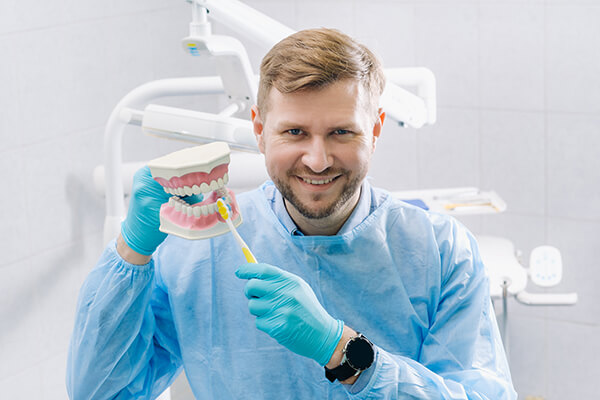The Ultimate Overview to Porcelain Veneers Washington DC: Boost Your Confidence
The Ultimate Overview to Porcelain Veneers Washington DC: Boost Your Confidence
Blog Article
Usual Questions About Dental Veneers Responded To
Oral veneers have become a progressively sought-after alternative for those aiming to enhance their smiles, yet lots of people continue to be unclear regarding numerous aspects of their usage. Key questions frequently arise pertaining to the application process, long life, and prospective risks related to these cosmetic improvements. The difference in between porcelain and composite veneers can significantly affect one's selection. As we check out these common queries, it becomes necessary to think about not just the benefits but additionally the effects of opting for dental veneers in search of an extra confident appearance. What aspects should one weigh before making such a decision?
What Are Oral Veneers?
Oral veneers are slim, custom-made shells crafted from porcelain or composite resin that are designed to cover the front surface area of teeth. These dental prosthetics offer both useful and visual objectives, giving a remedy for various dental imperfections, consisting of discoloration, chips, gaps, and imbalance. By sticking to the teeth, veneers can considerably enhance the total appearance of a smile, creating a more uniform and appealing look.
Porcelain veneers are specifically preferred for their natural translucency and tarnish resistance, making them an ideal choice for people seeking long-lasting results. In contrast, composite material veneers are normally more economical and can be used in a single go to, however they might not use the exact same toughness as porcelain options.
The decision to go with oral veneers frequently stems from a wish for aesthetic improvement, yet patients need to additionally take into consideration aspects such as the longevity of the material, maintenance demands, and the possible need for tooth reduction (Veneers). Ultimately, dental veneers represent a effective and versatile solution for achieving a glowing smile, accommodating specific aesthetic requirements while advertising self-confidence and self-worth
Just How Are Veneers Applied?
The application procedure for veneers calls for cautious planning and accuracy to make sure optimal results. The procedure generally starts with an extensive consultation, where the dental professional reviews the client's dental health, discusses desired end results, and determines the proper type of veneers, whether porcelain or composite material.
As soon as the treatment strategy is developed, the dental expert prepares the teeth by getting rid of a thin layer of enamel, generally about 0.5 mm to 1 mm, to fit the veneer. This step is important as it makes certain a correct fit and protects against the veneers from appearing cumbersome - Dental Veneers. After prep work, impressions of the teeth are required to develop custom-made veneers that match the individual's one-of-a-kind oral structure and visual preferences
While the long-term veneers are being made in a dental research laboratory, temporary veneers might be put to protect the ready teeth. When the irreversible veneers are all set, the dental expert will very carefully bond them to the teeth utilizing a strong oral adhesive. Final changes are made to make certain correct alignment and bite, adhered to by polishing for a natural look. The process finishes in a follow-up visit to check the veneers' fit and the person's satisfaction with their brand-new smile.
What Are the Conveniences?

Additionally, veneers are known for their durability and resistance to staining compared to natural teeth. Made from high-quality products such as porcelain or composite resin, they can keep their look for years with proper treatment. This durability makes them a useful investment in one's oral look.
In addition to visual improvements, veneers can additionally add to improved oral wellness. By covering harmed or compromised teeth, they can offer added assistance and defense, aiding to stop additional decay or deterioration. This protective facet can lower the requirement for much more considerable oral treatments in the future.

The Length Of Time Do They Last?
With proper care and upkeep, oral veneers can last anywhere from 10 to 15 years, making them a lasting solution for improving one's smile. The durability of veneers mostly depends upon the material utilized, the top quality of the initial placement, and the individual's adherence to dental hygiene methods.
Porcelain veneers are recognized for their durability and resistance to staining, normally lasting closer to the 15-year mark when taken care of properly. Compound veneers, while extra cost effective, might require substitute earlier, typically within 5 to ten years because of their sensitivity to wear and discoloration.

In addition, putting on a mouthguard during sporting activities or nighttime can give extra defense. Inevitably, while veneers offer a significant aesthetic enhancement, their durability is considerably influenced by the commitment to appropriate dental treatment and regular examinations with an oral expert.
Are There Any Kind Of Dangers?
Considering the transformative results of dental veneers, it is essential to acknowledge the possible risks linked with their application. While veneers can enhance the appearance of teeth, the treatment involves the removal of a thin layer of enamel, which can boost tooth level of sensitivity and susceptability to degeneration.
One significant danger is the possibility of inappropriate positioning or suitable, resulting in check pain, bite imbalance, or also damages to the underlying tooth structure. Additionally, if the veneers are not site web kept appropriately, they can become blemished or broken gradually, requiring substitute.
Patients may also experience allergies to the products used in the veneers, especially if they have level of sensitivities to certain dental composites. While veneers are sturdy, they are not indestructible; extreme pressure from grinding or clinching can lead to cracks.
It is necessary for people to seek advice from a qualified dental expert to assess their individual risks and to follow aftercare instructions carefully. By recognizing these risks, clients can make educated decisions concerning their oral veneer therapy and make sure the durability and success of their enhancements.
Conclusion
In recap, dental veneers represent a useful cosmetic service for improving smiles, with considerations concerning their application, benefits, longevity, and linked dangers. Their performance is affected by elements such as the selection of product, with porcelain offering remarkable resilience compared to composite options. Appropriate care and maintenance are essential to optimize the life expectancy of veneers. Ultimately, educated decision-making regarding dental veneers can result in sufficient aesthetic end results and boosted oral wellness.
Dental veneers are thin, customized coverings crafted from porcelain or composite material that are created to cover the front surface area of teeth. After prep work, impressions of the teeth are taken to create personalized veneers that match go to this web-site the client's special dental structure and visual preferences.
While the permanent veneers are being fabricated in a dental research laboratory, short-term veneers might be positioned to protect the ready teeth. Once the permanent veneers are prepared, the dental expert will meticulously bond them to the teeth making use of a solid dental adhesive. Eventually, notified decision-making regarding dental veneers can lead to acceptable visual results and boosted dental wellness.
Report this page